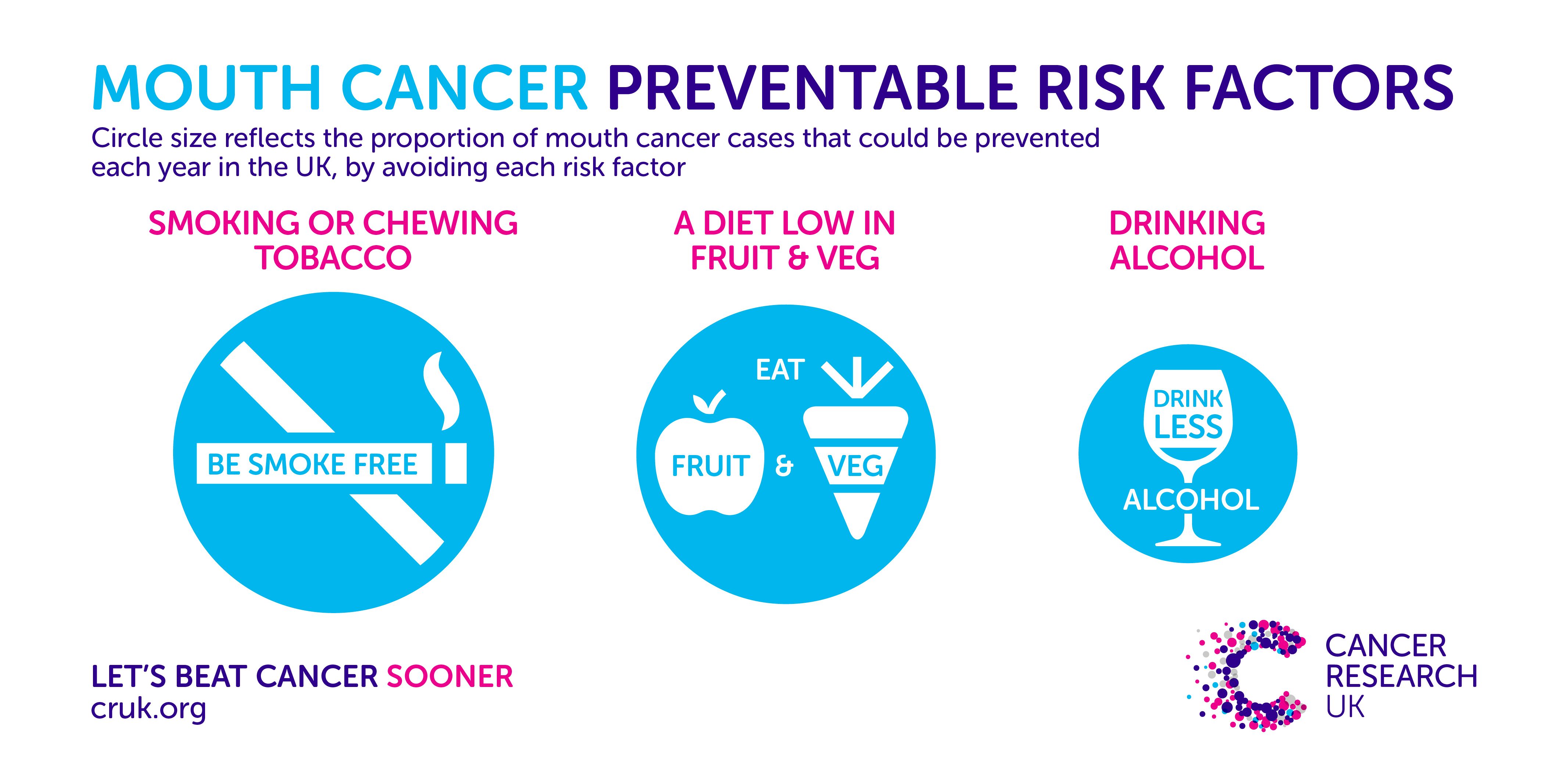
We all think we know what to look out for when it comes to cancer. But many of us forget it can occur in our mouths. Indeed, the UK’s oral cancer statistics make for a sad read.
Today around 2,400 people die from oral cancer, 20 years ago this was around 1,600 and rates are projected to rise by 38% in the UK between 2014 and 2035.
In fact, oral cancer cases are also becoming more common, according to figures by Cancer Research UK. Rates of oral cancer have increased by 68% in the last 20 years in the UK. Take into account the lack of checkups through lockdown this makes for a scary number.
There are several known causes or associations with oral cancer – and aside from age and genetics –there are ways in which we can all lower the risks.
Too much sun exposure may also raise the risk of lip cancers. But the good news is that 91% of oral cancers could be prevented with lifestyle changes.
Mouth Cancer Action Month runs all throughout November – and it’s worth noting that early diagnosis is always important for treating cancer.
When did you last have a check up at the dentist? The dental team can carry out an oral screening and will discuss your lifestyle habits – so it is important to book a dental appointment regularly.

Smoking
The most obvious risk factor is smoking – and it’s not just the smoker who’s affected! Mouth cancer risk is 87% higher in those who have never smoked but who have been exposed to tobacco smoke at home or work. It is time to quit – for the sake of your loved ones as well as yourself, perhaps?
Alcohol
Alcohol is another risk factor and is associated with around a third of oral cancers. For those of us who are regular smokers and drinkers, we are at a higher risk of developing an oral carcinoma – a level that could be as high as 30 times more likely than those who do neither.
HPV
Increasingly, Human Papillomavirus (HPV) is a risk factor, too. This infection is usually associated with cervical cancer – 90% of HPV infections go away by themselves within two years and don’t affect the health of most people.
This is a common infection with more than 100 different types of HPV but sometimes it can persist and can cause cell changes – practising safe sex lowers the risks of contracting HPV. There is a programme in place in the UK vaccinating girls against the type of HPV that causes cervical cancer, but not currently for boys. This is something many would like to see changed – and there is a campaign for a gender-neutral vaccination programme.
Shockingly, many experts predict HPV will soon take over as the biggest cause of mouth cancer.
Comparethetreatment’s oral health expert, Christina Chatfield, a dental hygienist and clinical director at Dental Health Spa in Brighton, says: ‘I was shocked when I heard the stats about mouth cancer. More people die from oral cancer than testicular and cervical cancer combined but are very much more aware of these other cancers.
‘Late detection is the primary reason why more people die. HPV is overtaking smoking and drinking as risk factors, which puts the majority of the population at risk – it is no longer an ‘old person’s disease.’
Diet
Diet can also contribute to oral cancer. Its effect on diabetes and heart disease is well documented but a good diet – high in fruit and vegetables reduces the risk. Research has shown fruit, vegetables and even green tea can all have positive effects! According to the NHS, eating a healthy, Mediterranean-style diet – including lots of vegetables – can help to prevent mouth cancer.
Symptoms
Persistent mouth ulcers, unexplained lumps in the mouth and neck, and looseness of teeth can all be symptoms of mouth cancer. If these symptoms don’t heal within three weeks – especially if you are a smoker or drinker – a trip to the GP is recommended.
Treatment
Mouth cancer is usually treated using surgery, radiotherapy and chemotherapy. If the disease is caught early, minor surgery can be used meaning the patient often has a high chance of curing the cancer for good. Because the disease affects many bodily functions, such as breathing and speaking, those undergoing treatment will also see a dietitian and dentist.
Meanwhile, dentists are encouraging us to wear a blue ribbon to raise awareness of the risks and the importance of early detection.
Dr Nigel Carter is CEO of the Oral Health Foundation, says: ‘The Blue Ribbon Appeal is one of the pillars of Mouth Cancer Action Month. It shows that doing something relatively small, like wearing a badge, can have a huge effect in raising awareness of this terrible disease.
‘The blue ribbon is an enormous symbol of support for those that are currently suffering from mouth cancer, those that have beaten it, those that have unfortunately lost their battle to it and for anybody who has been affected by what is a growing problem.’
1 in 75 men and 1 in 150 women will be diagnosed with oral cancer during their lifetime – so get checked out today!

